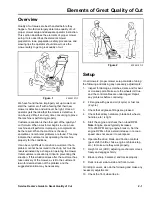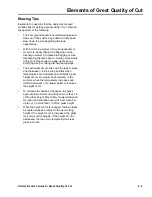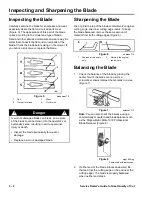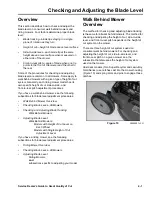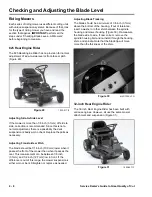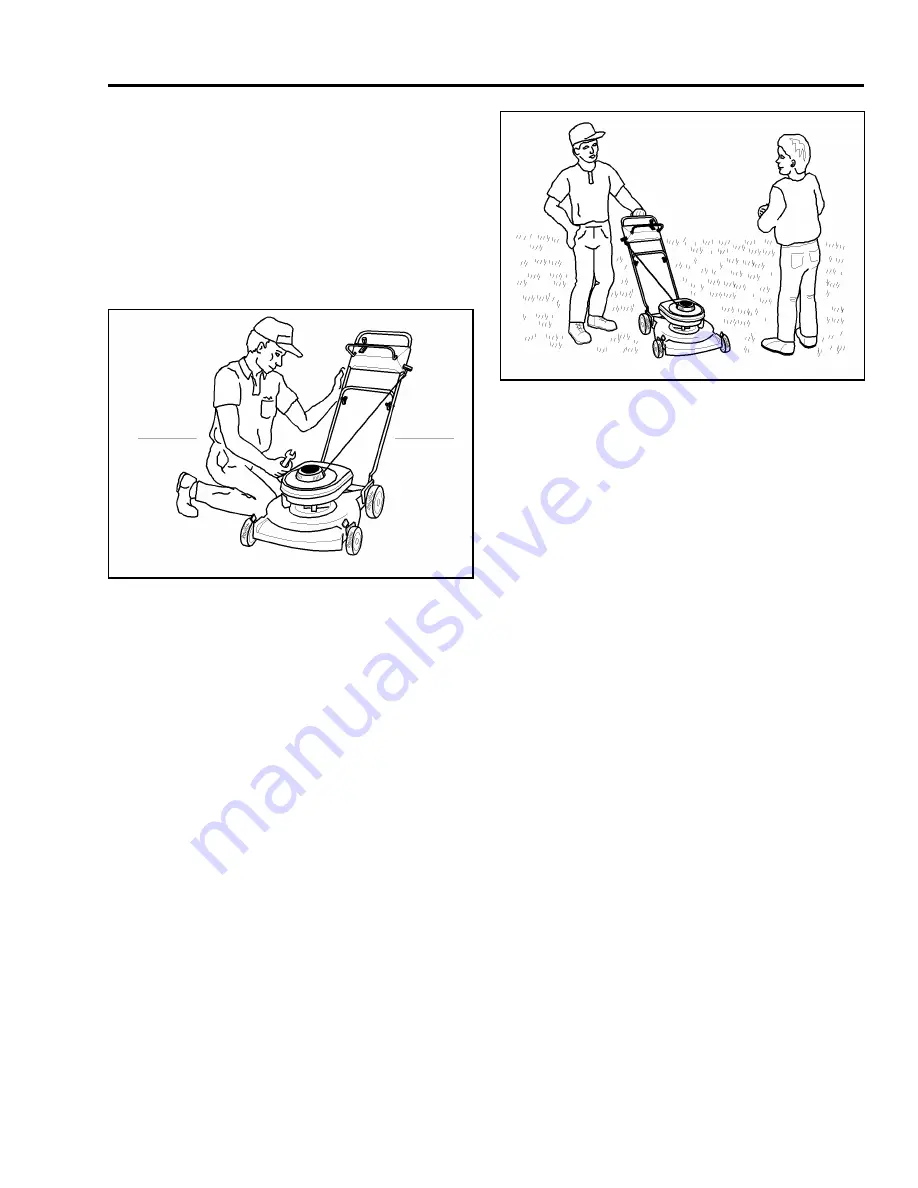
Service Dealer’s Guide to Great Quality of Cut
2 - 1
Elements of Great Quality of Cut
Overview
Quality of cut issues are best handled before they
happen. Two factors largely determine quality of cut:
proper mower setup and adequate operator instruction.
This section describes the elements of proper mower
setup. It also describes the elements mower
preparation, lawn preparation, safety procedures, and
mowing tips the operator should know to use the
mower safely to get a great quality of cut.
Figure 1
5300.012.TIF
We have found that an improperly set up mower can
start the customer off with a feeling that their new
mower is defective and will never be right. Once an
operator gets the idea that the mower is defective, it
can be very difficult and very time consuming to prove
the machine is performing properly.
Customer education is the other part of the quality of
cut formula. When a customer begins to use a new
machine and it performs improperly, a complaint can
be the result. When the machine is checked,
sometimes no technical problems are found. This may
indicate the customer is not operating the machine
properly for the conditions.
It can be very difficult to convince a customer that a
problem cannot be resolved in the shop, but must be
resolved instead by a change in operating the mower.
Initial customer education is critical in preventing this
situation. If this situation arises after the customer has
taken delivery of the mower, a visit to the customer's
lawn for demonstration of the problem and the
suggested solution may be necessary.
Figure 2
5300.010.TIF
Setup
On all mowers, proper mower setup consists of doing
the following and making any necessary adjustments:
1.
Inspect for damage, scratches, dents, and for bent
or crooked parts. Make sure the wheels roll true
and the control cables are undamaged. Repair
any problems before continuing.
2.
Fill engine with gas and oil (4 cycle) or fuel mix
(2 cycle).
3.
Check that all grease fittings are greased.
4.
Check that all key hardware (blade bolt, wheels,
handles, etc.) is tight.
5.
Start the engine and check the no-load RPM.
Note:
Engine speed typically increases
100–200 RPM during engine break-in. Set the
engine RPM so that a small increase in no-load
speed does not cause it to overspeed.
6.
Operate the drive, blade, and traction controls
(gear shift, throttle, choke, engine or blade-stop,
etc.) to make sure they work properly.
7.
Height of cut (HOC) adjusting mechanism moves
freely and engages firmly.
8.
Blade is sharp, balanced, and tracks properly.
9.
Deck is level side-to-side and front-to-rear.
On riding mowers, also do the following and make any
necessary adjustments:
10. Check the front wheel toe in.
Summary of Contents for Recycler 20351
Page 1: ...MANUAL ...
Page 6: ...iv Service Dealer s Guide to Great Quality of Cut This page intentionally left blank ...
Page 8: ...1 2 Service Dealer s Guide to Great Quality of Cut This page intentionally left blank ...
Page 12: ...2 4 Service Dealer s Guide to Great Quality of Cut This page intentionally left blank ...
Page 16: ...3 4 Service Dealer s Guide to Great Quality of Cut This page intentionally left blank ...
Page 40: ...4 24 Service Dealer s Guide to Great Quality of Cut This page intentionally left blank ...
Page 44: ...5 4 Service Dealer s Guide to Great Quality of Cut This page intentionally left blank ...
Page 56: ...7 10 Service Dealer s Guide to Great Quality of Cut This page intentionally left blank ...









